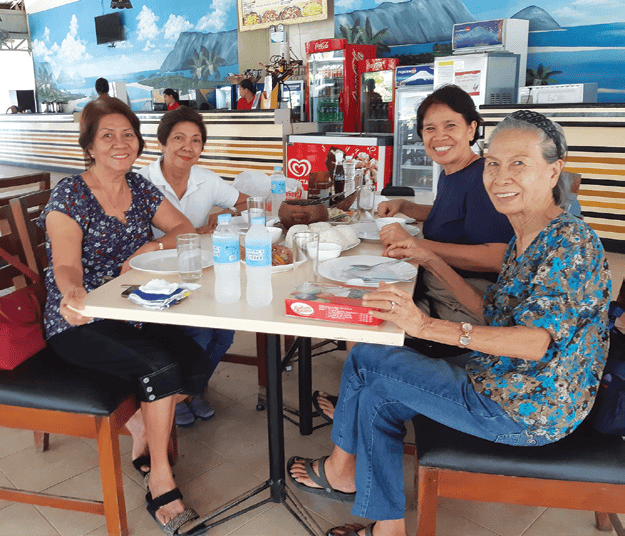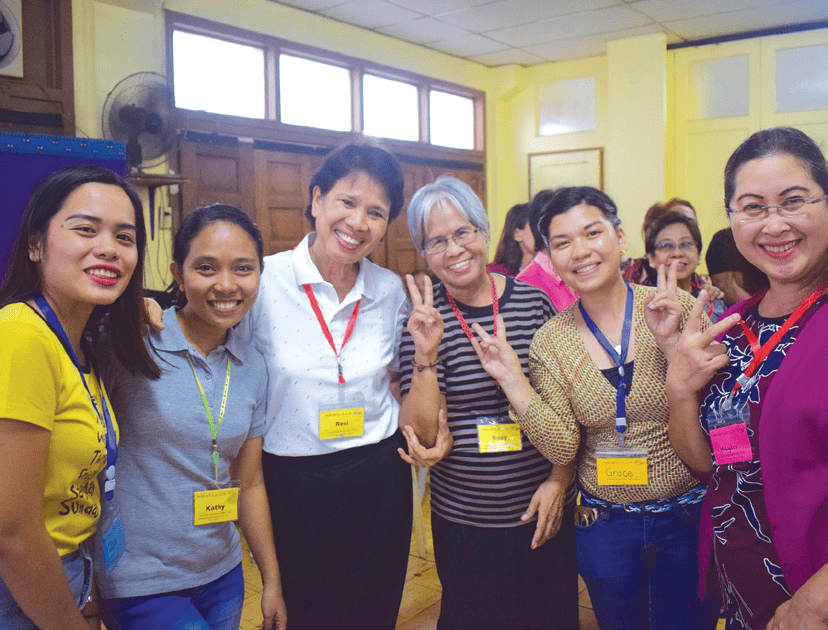
When I joined the Focolare Movement, one of the things that struck me was what Chiara Lubich, its founder, once said: “It’s not enough to be happy. You must share it with others.” So I made it a point to share my experience and insights with others, so that they, too, will be happy. Last January 2023, I was privileged to be among the participants of the FIAT Stop and Go, a renewal course. There, I learned that age should not limit or determine whether we are full of passion for what we want to do and so many other beautiful things. This truly resonated with seniors like me. Upon returning home, I immediately communicated, through video call, what I have learned with my siblings and relatives. Sure enough, they, too, were happy and got a new sprint in life.
On April 23, 2023, the New Families of Davao held a Family Day with the theme “Emotional Health and Wellness and Self Care.” The resource speaker ably explained that emotional and mental illnesses are treatable and should not be a cause of embarrassment for family members. Instead, everybody should be aware of this and not hesitate to ask for professional help when we observe somebody showing some symptoms of mental illness. A strong desire to share this knowledge started to burn in my heart. I felt that many would be happy to know this information.

Then on April 29 and 30, I opted to join the FormaT seminar for accompaniers of the youth online. During the breakout sessions, I chose to join the group on Emotional Management. I was so struck by the discussion on emotional self-regulation. I learned that we can manage our emotions and not wait for our emotions to control us. I understood that we can choose not to follow the urge to be angry. First, we need to acknowledge the emotion, and then, tell ourselves not to act on the anger felt, because following our emotions doesn’t solve the problem but rather complicates it. After the FormaT seminar, the push to share with others what I learned intensified. So I immediately spread the word to my siblings. Then I contacted our local Sangguniang Kabataan2 Federation President who gladly scheduled my appearance so I could transmit my learnings during their session last May 12. My husband also made some research which greatly enriched my topic and made it more relevant to the participants. The following day, when we had our post-wedding anniversary and pre-Mothers Day celebration, we spoke and discussed about managing emotions with our grandchildren and son-in-law. They enjoyed the interaction so much that it seemed that they did not want us to leave anymore.
Next, I contacted the Department of the Interior and Local Government (DILG) City Office, the Association of Barangay3 Secretaries, and hoped to contact also the one of the barangay treasurers. When I came to the meeting last May 19, I was surprised and happy to discover that the DILG City Office had arranged for a joint meeting of secretaries and treasurers! My husband and I were overjoyed at how the topic struck a responsive chord with the participants, making them feel a great responsibility to take care of the people in their barangays. They said that our short sharing was a great stress reliever. One even affirmed that getting angry cannot bring back electricity during brownouts, or water when there are supply interruptions. After our sharing, I met the president of the senior citizens association who also wanted me to share in the next meeting with their chapter members. I’m glad with what we have done and, realizing that so much still needs to be done, I feel that “I am not yet retired.” Truly, when you give and choose to do good, the good comes back to you.
Rosi Laid
1 J. O’Donohue, Anam Cara: A Book of Celtic Wisdom. New York: Harper Perennial, 2004.
2 Youth Council
3 A small territorial and administrative district forming the most local level of government in the Philippines.




